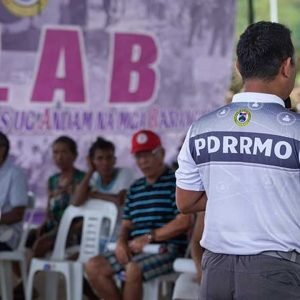
ISSUES of control and limited authority were raised by Mandaue City Treasurer Regal Oliva as reasons for not supporting the proposed public-private partnership (PPP) model to fund Mandaue City’s new government center.
The proposal to finance the construction of the City’s new one-stop-shop government center, located in the abandoned Cebu International Convention Center, came from Acting Vice Mayor Nerisa Soon-Ruiz, who said PPP can help the City avoid debt.
Oliva, in an interview on Monday, Sept. 2, 2024, expressed confusion over Ruiz’s sudden objections to the loan agreement, having already passed the second reading of ratification of the budget for the government center on the same day.
Oliva said the decision to authorize the loan had already been approved by the City Council in 2023. Oliva questioned why Ruiz did not raise these concerns earlier in the process.
Oliva defended the decision to proceed with the loan, arguing that the City needs to invest in a new government center to meet its growing administrative demands.
The P3 billion loan, while substantial, is necessary to finance a project of this magnitude and would still allow the City to address other critical needs, such as education and healthcare, Oliva added.
Concerns
Oliva also voiced concerns about the limitations of a PPP arrangement. She argued that while a PPP might alleviate the City’s immediate financial burden, it could lead to complications in the long run.
Private entities might decide to occupy the most commercially viable parts of the government center, such as the first eight floors, leaving the City with control over only the upper levels.
This arrangement, Oliva warned, could result in the City having limited authority over a building that is intended to serve the public.
She expressed concern that this could lead to conflicts between the City and private operators over the use of the building, particularly if public access to certain areas is restricted.
“With things like these, it would not be beneficial to Mandaue City. How iconic can it be if it is run by private entities and we don’t have a say in the use of our public building? It’s supposed to be a public building, and if people are not allowed entry by private entities, this is to prevent future misunderstandings,” said Oliva.
Oliva added that the loan option would allow the City to retain full ownership and control over the government center, ensuring that it remains a public facility in every sense.
She acknowledged that the loan would indeed result in a significant financial obligation for the City but the long-term benefits of maintaining control over the property would outweigh the costs.
Interest costs
In a separate interview on Monday, Ruiz said the PPP is the best means to finance the new government center.
She said this approach would shield the City from taking on a significant debt burden, which she believes could have long-term repercussions.
She raised concerns about the financial implications of such a large loan, explaining that the City would not only have to repay the P3 billion principal but would also incur substantial interest costs.
Ruiz laid out the numbers to illustrate her point: With the proposed P3 billion loan, the City allocated P2.5 billion for the actual project, with the remaining P500 million set aside as a buffer fund.
When broken down over a 15-year repayment period, this would translate into an annual principal payment of P200 million.
Additionally, the interest on the loan, calculated at 3.5 percent per annum, would amount to P105 million per year.
Ruiz said over the course of 15 years, the total interest payments would accumulate to P1.575 billion, bringing the overall debt to P4.575 billion by the end of the loan term.
“PPP is no cost to the City,” she said.
Ruiz was concerned that this significant financial commitment could limit the City’s ability to fund other critical projects, such as flood control initiatives, hospital expansions, and the construction of new schools.
The groundbreaking for the new government center took place on Thursday, Aug. 29. / CAV







